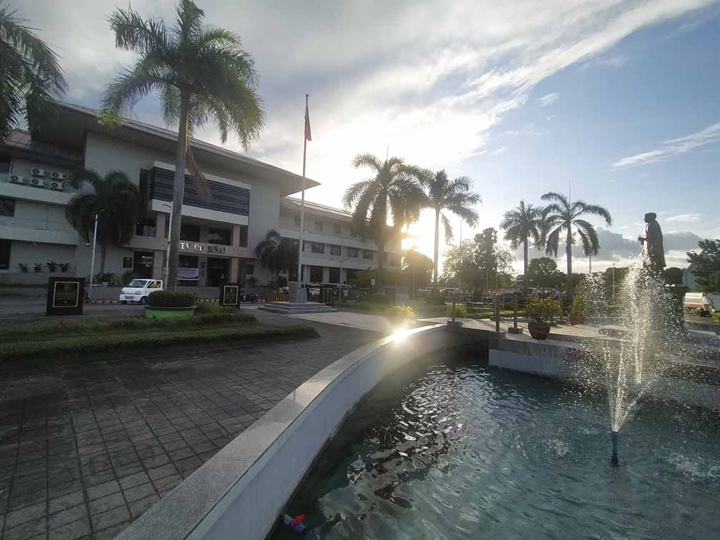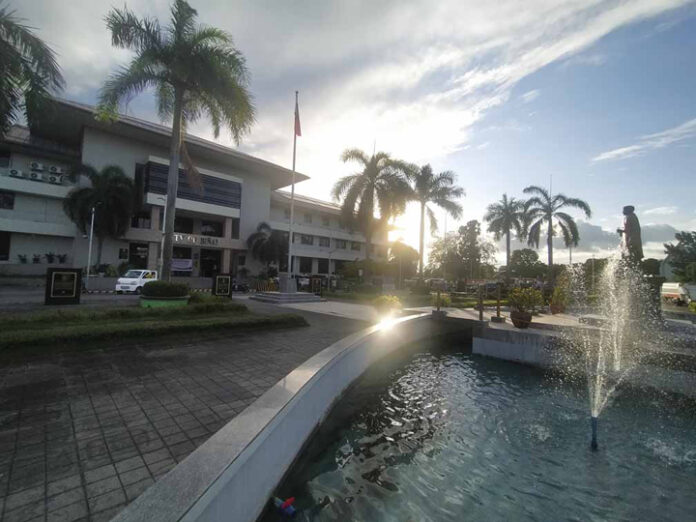
THE worst economic performance of the Philippines since 1946 is a serious setback, but recovery can be hastened in 2021 as reforms to boost business amid the lingering impact of the Covid-19 pandemic are pursued, lawmakers and Executive officials said on Thursday.
Malacañang said the country’s gross domestic product (GDP) growth is expected to return to positive territory this year once more businesses reopen.
Citing data from the National Economic and Development Authority (Neda), Presidential spokesperson Harry Roque disclosed GDP is projected to grow to 6.5 percent to 7.5 percent this year and 8 percent to 10 percent by 2022.
“But I would like to clarify, this will happen if the economy will fully reopen,” Roque said in an online press briefing.
NCR classification
He noted this may depend on the lowering of the community classification of the National Capital Region (NCR), where 60 percent of the country’s business operations are located, to the more relaxed modified general community quarantine (MGCQ).
The Inter-Agency Task Force on Emerging Infectious Diseases (IATF) will only consider downgrading the community quarantine classification of NCR if Covid-19 cases in the region are kept in check through strict implementation of minimum health standards among residents.
NCR is under general community quarantine (GCQ), which limits mass gatherings and prevents some establishments from resuming operations.
Roque issued the statement after economic managers reported the GDP for the entire 2020 contracted by 9.5 percent, the low end of government’s projections, as the country suffered the impact of crippling lockdowns forced by the Covid-19 pandemic.
GDP in 2019 grew by 6 percent.
3 solutions
The chairman of the House Committee on Ways and Means on Thursday urged the government to prioritize three solutions and avoid what he calls “temptations” on policy.
Albay Rep. Joey Sarte Salceda wants government to expedite spending, accelerate vaccine rollout, and be open to more private investments.
“The most important one is vaccine rollout. We need herd immunity before this year ends. There can be no ifs and buts here. I urge the government to
support the Bayanihan sa Bakuna Act (House Bill 8285) because it will expedite procurement, rollout and administration of vaccines. No point in gradual reopening of the economy if we will not give people the confidence to go out,” Salceda said.
“The second most important solution is to make sure we spend the 2021 budget and exhaust the 2020 budget completely this year. No toleration of delays in spending should be tolerated. I sternly warn implementing agencies that Congress will hold you accountable for the budget requests you submitted but cannot spend,” Salceda added.
Finally, the economist-lawmaker said the country must signal to the domestic and international investing communities that the Philippines is serious about being open for business.
“That means passing CREATE [Corporate Recovery and Tax Incentives for Enterprises bill], Economic Charter Change in the form of RBH 2, and being more open to public-private partnerships that are fair,” he said.
He said CREATE and RBH2 combined will produce 7.7 million jobs over the next 10 years.
“This is a turning point. If we get 2021 right, we will get 2030 right. If we don’t, we’re in trouble,” Salceda concluded.
Salceda said the country must prevent the long-term impacts of economic decline on future productivity.
“Our people are our best investments. If our young suffer from malnutrition now because of widespread hunger, we will suffer for generations. The future will be an information age. If the ability of the young to learn and be productive is limited now, we have a very concerning prospect,” Salceda warned.
“As I said just this week, we need to ramp up Plant, Plant, Plant to feed our people and lower food prices. And we need direct transfers of cash to the poor,” Salceda added.
Temptations
He, however, warned against policy temptations, listing three things to be avoided.
“One is to deplete the revenue base by making redundant incentives too generous, or by making unreasonable or impulsive tax exemptions. Apart from those we can clearly justify, I am averse to any more erosion of revenues,” Salceda said.
The second temptation is to build credit barriers, the solon said.
Finally, the government should avoid the fear of the deficit.
“These are extraordinary times. The best way to protect credit ratings is not to avoid borrowing, but to avoid further economic decline. The measure of our borrowing capacity is economic health, not debt stock. If at some point, we need to supplement social spending, we should be open to it. I would rather have high growth and high deficit than low growth and low deficit. Low growth is the enemy, because it is what drives people to poverty and hunger,” Salceda said.
Stimulus
Global real-estate services firm Cushman & Wakefield also weighed in. Claro Cordero Jr., its director and head of research, consulting and advisory services, said: “Along with the fresh policies to be implemented by the government to arrest the downward trend of the economy this year, there are other stimulus measures” that could put back on growth track the Philippine real-estate sector, also impacted by the pandemic.
“Apart from improving the competitiveness of the credit sector by keeping interest rates low, the advancement of digital technology will be able to assist the sectors, such as those working from home and the boom in e-commerce, that greatly depend on connectivity. The swift passage into law of important pending legislations, such as CREATE, which seeks to reduce the corporate income tax, and the Financial Institutions Strategic Transfer (FIST) Act, which will free up the banking system from bad loans and nonperforming loans—are seen to relieve the burden on the micro, small and medium enterprises (MSMEs) severely affected by the pandemic.”
Misery on ground validated
The PSA announcement simply validated the widespread economic hardship felt by the Filipinos, Marikina Rep. Stella Luz Quimbo said, but added this can be addressed by right spending, passage of economic bills and another stimulus package.
Prior to the pandemic, Quimbo said the government spending growth in 2019 was already at 8.7 percent.
“Now that there is a pandemic, and economic downturn, government spending growth is only 10.38 percent for 2020,” she said.
According to Quimbo, Philippine spending is the lowest in the Asean.
Quimbo said the government’s plan on moving forward relies on five pieces of legislation: Bayanihan 2, the 2020 and 2021 budgets, CREATE bill, the Government Financial Institutions Unified Initiatives to Distressed Enterprises for Economic Recovery (GUIDE) and the FIST Act.
Quimbo also said the only way that risk aversion can be addressed is for government to increase its spending.
“My version proposes a P400-billion spending, P330 billion as Covid response and P70 billion as disaster response,” she said.



